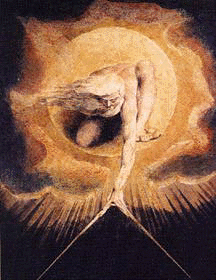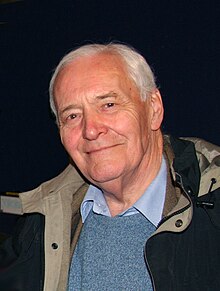Last week the BBC
broadcast a documentary to mark twenty years since the IRA declared a ceasefire
which led to the end of the conflict in the north of Ireland. As I watched the BBC
images of cheering republicans waving tricolours in west Belfast and celebrating the
declaration on 31 August 1994 I sensed an emptiness inside me. In retrospect the
hopes and optimism of that day seem somewhat naive and unfounded. We believed
we were celebrating a breakthrough but I wondered what we expected it would
lead to. Did we expect that two decades later there would still be ongoing political
tension in the north of Ireland and that the union with Britain would remain as
secure as ever?
The
documentary, Who Won the War? put
this very question to a number of leading Irish and British politicians and
political activists. Film maker and journalist, Peter Taylor, elicited
responses from all sides before he concluded by giving his own answer to the
question. Taylor has followed developments in the conflict for many years in
his documentaries and writings. In this latest production he spoke at times with
a depth of feeling and engagement with the topic.
Standing
in front of a multi-storey loyalist bonfire “decorated” with Sinn Féin election
posters and tricolours, Taylor comments, “In some parts normality seems like a
veneer to hide the powerful undercurrents of bitterness and resentment”. Fierce
opposition to the removal of the Union flag from Belfast city council and protests
by the Orange Order over the so called right to march are expressions of this
bitterness and resentment. But perhaps the most visible and enduring sign that
real peace has not yet come about are the four or five metre high walls
dividing Catholic and Protestant communities in Belfast.
Speaking
from a loyalist viewpoint, Billy Hutchinson of the Progressive Unionist Party
argued that his community feels alienated from the state. He pointed out that working
class loyalists feel they haven’t gained anything from the peace process, there
is still deprivation, poverty and educational under achievement. Pressed on the
issue of what loyalist violence achieved, if anything, Hutchinson replied that
it had “prevented a United Ireland”.
 If
Hutchinson was satisfied with this achievement, he didn’t look it. Preventing a
United Ireland has not raised living standards for either community and
dissatisfaction with the current political situation is also apparent among
working class Catholics. Former IRA prisoner Gerard Hodgins tells Taylor “We
set out to be revolutionaries and overthrow the state and ended up being
caretakers of the state... 3,000 plus people is a hell of a price to pay to
become part of the state you were trying to overthrow.” Hodgin’s reply to the
question as to who won the war, is blunt, “the British”.
If
Hutchinson was satisfied with this achievement, he didn’t look it. Preventing a
United Ireland has not raised living standards for either community and
dissatisfaction with the current political situation is also apparent among
working class Catholics. Former IRA prisoner Gerard Hodgins tells Taylor “We
set out to be revolutionaries and overthrow the state and ended up being
caretakers of the state... 3,000 plus people is a hell of a price to pay to
become part of the state you were trying to overthrow.” Hodgin’s reply to the
question as to who won the war, is blunt, “the British”.
The
deputy first minister, Martin McGuinness of Sinn Féin, is more sanguine as to
the outcome of the conflict. The inequalities suffered by nationalists are in
the past and “people are no longer being treated as second class citizens.” While
it is true that there is equality of political representation in the Stormont
government, there are still profound differences with regards to the levels of
deprivation. Statistics indicate that poverty tends to be more concentrated in
Catholic working class areas than Protestant.* People living in these areas suffer doubly,
religious and class discrimination.
Perhaps
the most depressing image in the documentary was that of Sean McKinley.
McKinley featured in a 1970s documentary as a young boy with the initials “IRA”
tattooed on his knuckles. Back then he announced that when he grew up he would
fight and die for his country. McKinley spent time in prison for killing a British soldier and now, in his early
fifties, looking weary under the weight of his years, he tells Peter Taylor, “I
know a lot of people who thought they were fighting and dying for their country
but it never worked out that way... We’ll get there ... I have faith in Gerry
Adams and Martin McGuinness.”
Gerry
Adams is a now member of Dáil Éireann and president of what is currently the
largest party on the island of Ireland, Sinn Féin. The party has come a long
way since the early days of the conflict and Adams clearly believes that it can
go further still. When asked “Who won the war?” he replies that the struggle
isn’t over.
Overall,
the portrayal of nationalists in “Who Won the War” is forward looking and
optimistic and at one point Peter Taylor remarks, “Coming back to Belfast, I
really get the sense that Nationalists and Republicans are comfortable in their
own skins” or “confident in their Irishness and republicanism,” as Martin
McGuinness puts it.
In
answer to his own question, who really won the war, Peter Taylor states that
the winners are the British and the Unionists because the union with Britain is
still safe. However, he adds a caveat, “I wouldn’t be surprised if in the long
years ahead a United Ireland did emerge.” Listening to him, I wondered if at
some level on that afternoon of August 1994, this was what we were cheering about,
a long term goal of freedom from colonial status or was it something more
immediate, like equality. And this, I suppose is what the documentary brings
into focus, not who won the war but what the war was about. If it was about
equality, then Republicans have triumphed and if it was about ensuring a united
Ireland did not come about then Unionists have won. In the end, it appears to
depend on which story each side wants to tell themselves.

